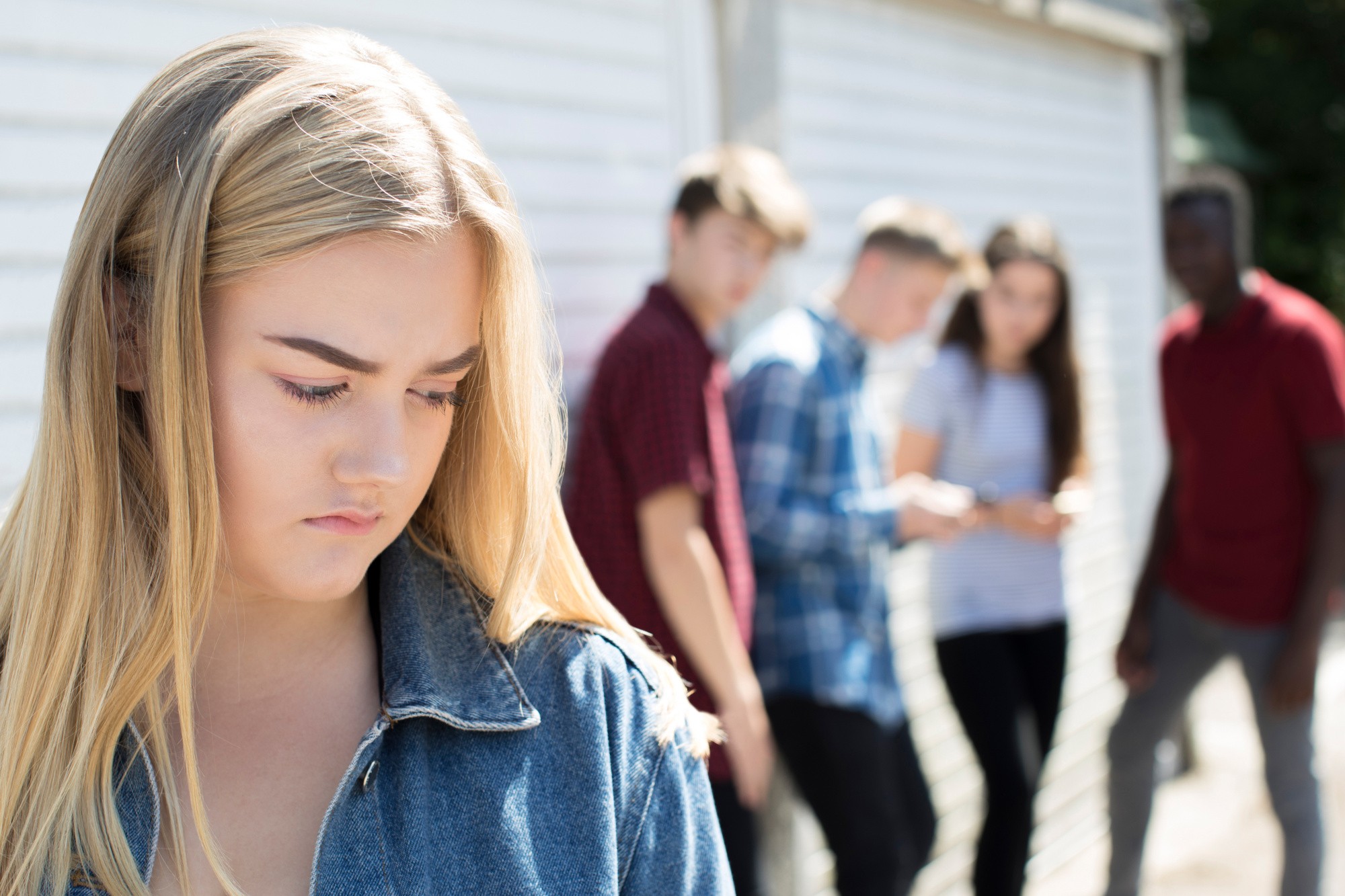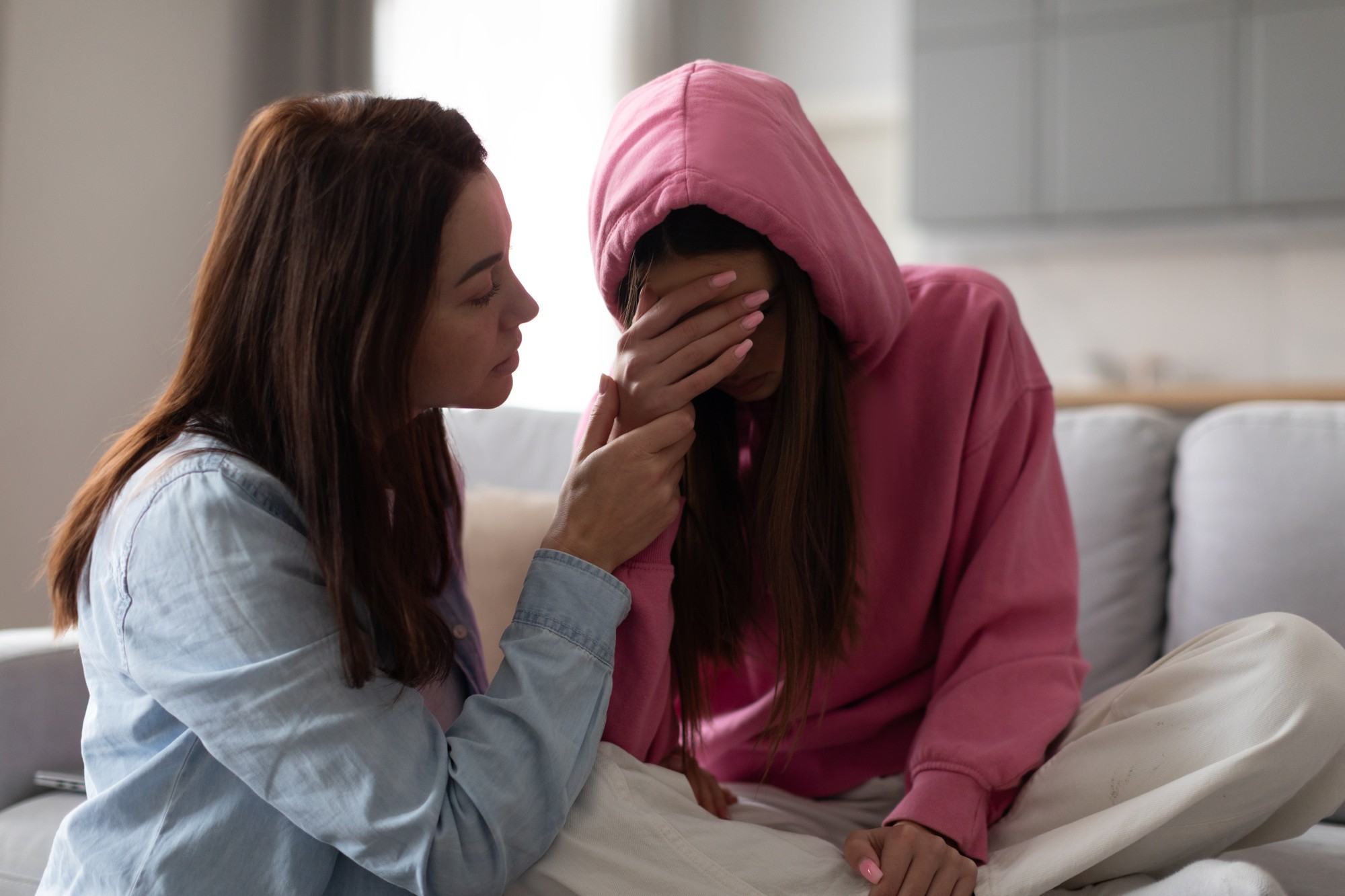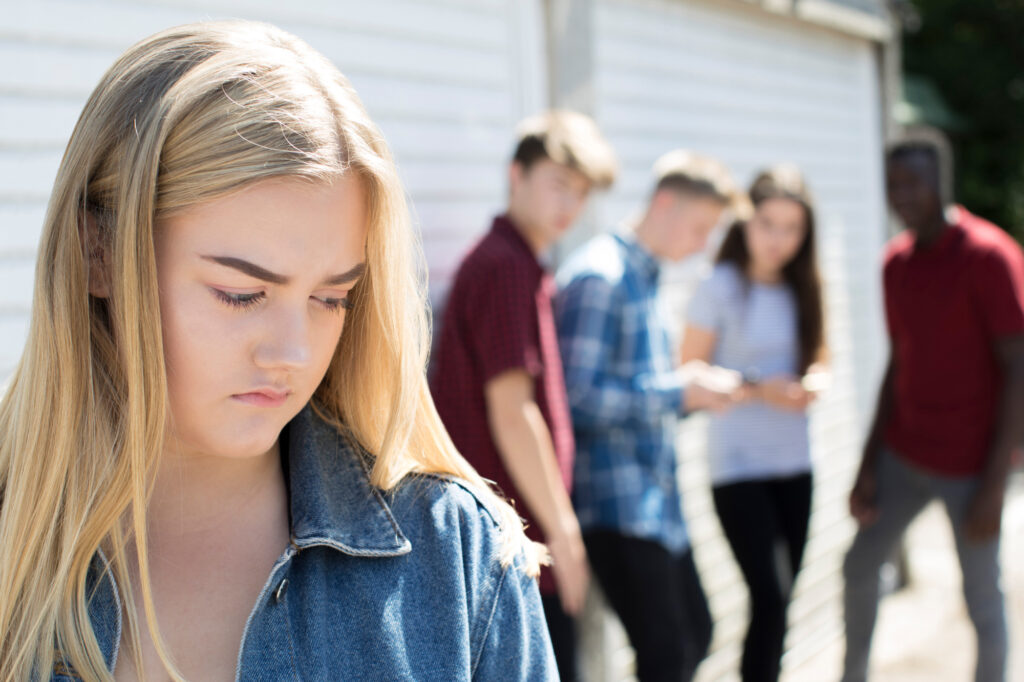It’s never easy when friendships end.
You might have been the one to decide to end it, or maybe your former friend decided to break it off. The friendship might have been overtly toxic or codependent, or it may have seemed totally normal. It might have ended out of the blue, or you might have just gradually drifted apart.
Either way, knowing how to get over a friendship breakup takes patience.

Though friendship breakups are not discussed as often as romantic breakups, they happen to everyone. And they can hurt just as badly – or even worse – than a breakup with a romantic partner. Ashley Mateo, writing in Oprah Magazine, has this sage insight about friendship and friendship breakups:
“Our brain doesn’t know the difference between a romantic or platonic relationship.”
Oftentimes, neither does our heart. Whichever way it ended, it’s now over. And you’re suffering. You’re probably wondering how to deal with a friendship breakup, so we put our heads together and came up with some things you can do for yourself to move forward, through and past the pain of a lost friendship.
Tips for How to Get Over A Friendship Breakup
- Acknowledge your pain. First, know that your grief is normal. The pain from a breakup of a deep friendship is as real and valid as any other. You and your friend probably shared almost everything and spent practically all your time together. You talked on the phone for hours on end, and shared endless texts and messages. And now it’s all gone. That loss of intimacy and connection is real. It’s valid. And it hurts: please don’t try to tell yourself it’s nothing, because it really is something.
- Practice self-care. Though it seems far easier to mope in bed all day, make sure you get out and take care of yourself. Don’t neglect personal hygiene, and participate in your regular daily/weekly activities – even if they’re the last thing you want to do. Just going about your regular routine will help you recover from the pain of the breakup. It helps to take part in activities that bring you satisfaction or joy. For you, this could be reading, playing music, creating art, socializing, chilling on the beach, getting a massage, getting your nails done, or something else. If it’s a healthy outlet, and it makes you feel better, it’s self-care.
- Avoid rumination. Okay, that’s a fancy psychology word for going over old thoughts to the point where they interrupt your present happiness. In the case of the modern teen – you – we mean you should avoid browsing through your old texts and pictures all day if they bring you more sadness. That’s not a helpful strategy for how to get over a friendship breakup. If you think it will help you move forward, delete them – but remember, erasing their memory is not what you’re after. You want to process the emotion, not pretend the relationship never happened.
- Exercise. Join a new gym. Practice Pilates, yoga, or strength training. Run around the block. Or pick up something brand new. Physical fitness has wondrous benefits on mental health and overall wellbeing. It can help prevent the onset of depression and anxiety, and it can reduce already existing depressive symptoms in teens.
- Talk to someone. This could be a parent, caregiver, school counselor, or even another friend. If your ex-friend is in the same school as you, try seeking support from a peer in another friend group, like a camp friend, a friend who lives in a different city, or maybe a cousin or neighborhood kid who goes to a different school. Additionally, realizing you have other good friends – even if they don’t live close to you – can make you feel better about the breakup.
- Read about others in your situation. You might think you’re the only one grieving a lost friendship. Think again. Google “friendship breakup” and see what happens: it brings up a long list of helpful articles and advice about how to handle exactly what you’re going through. Reading about others in your situation can help make you feel better about your own situation.
- Try a new friend group. Your former friend might have been in the same friend group as you, which could make things are awkward. If this happens, consider branching out to other peers at school, or try becoming closer with new individuals. Prepare yourself in advance – both literally and mentally – for how to go about this. Be ready for the anxiety you might feel when you walk to another cafeteria table during lunch instead of your usual one. Here are some tips and skills for making new friends that work: we’ve seen it happen many times.
- Examine what went wrong in the friendship. Oftentimes, friendships turn sour when one friend behaves insensitively toward the other. Or sometimes the toxicity is mutual. The root of the toxic behavior can often be tied to mental health issues or an underdeveloped sense of or awareness of boundaries. If you feel issues you need to work on played any part in the end of the friendship, then consider outpatient therapy – especially if this is not the first time an important relationship has suffered, or if you’ve realized that this is a recurring pattern in your life and/or friendships.
- Check your emotional health. Platonic breakups can induce an incredible amount of grief. If you feel like life isn’t worth living anymore or have thoughts of suicide, seek mental health assistance immediately. Feeling an extreme amount of sadness after a traumatic breakup can eventually lead to clinical depression – if you don’t work proactively to process your grief, loss, and sadness. If you develop clinical depression, you might need outpatient therapy. If depression escalates, you may need to spend time at a mental health treatment center.
Helping Teens Through a Friendship Breakup

Getting over a friend breakup is challenging for a teen. Teens place a high value on their peer relationships, and learning how to get over a friendship breakup can be difficult. A teenager who’s learning how to deal with losing a friend may be emotional, angry, or sad.
A friend breakup allows parents the opportunity to offer support and strengthen their relationship with their teenager. Parents can help by taking the time to learn how to revive relationships with teenagers, especially if you’ve grown apart.
What Is the Most Common Reason for Broken Friendships?
Broken friendships happen for many reasons, including:
- Arguments
- Misunderstandings
- Perceived “betrayal”
- Dating
- Different extracurriculars
- New friendships
- Drug or alcohol use
When you lose a friendship, sometimes there’s a distinct reason, like an argument. However, teens often drift apart as they develop different values, interests, and friend groups.
How Long Should a “Break” Last in a Friendship?
There’s no set period for how long a break lasts. It can be painful to hear that a friend wants to take a break, but it’s a sign that the relationship isn’t working. During a break, focus on learning tips for how to deal with friend breakups and recognize that a temporary break may turn into a permanent one.
What Are Some Key Indicators to End a Friendship?
Some of the signs that it’s time to learn how to move on from a friendship breakup include:
- You’re anxious about certain friends and what they think of you
- You’re the only one to make plans or put in effort
- Spending time together feels draining
- You disagree about core values
- They regularly cancel plans
- You no longer connect like you used to
If your friend is engaging in behavior you know is wrong or dangerous, it’s another sign that you should back away. There is help for teens available, but you shouldn’t put yourself in danger for the sake of your friendship.
How Do I Know When I’m in a Toxic Friendship?

You may be in a toxic friendship if they:
- Don’t keep your secrets
- Talk about you behind your back
- Get mad when you set boundaries
- Embarrass or make fun of you
- Lie to you
- Make you feel bad about yourself
Learning how to get over a friendship breakup can be a challenge, but making better friends can lead to happier, long-lasting peer relationships.
How to Accept That a Friendship Is Over
It can be hard to know how to accept that a friendship is over, but it’s essential in the process of healing. First, allow yourself to grieve the loss. Acknowledge your feelings and give yourself time to heal. Reflect on why the friendship ended and accept that some things are beyond your control. Focus on self-care and surround yourself with supportive people. Redirect your energy toward new hobbies or interests. Lastly, forgive both yourself and your former friend, acknowledging any resentment you have and letting go of it to the best of your ability. Remember: endings pave the way for new beginnings, and accepting closure is a vital step toward moving forward.
The Lesson: Embrace Change

When you’re in a close friendship, you might think you two will always stay this close. But friendships don’t always last forever, despite your expectations. Friends come and go throughout your life. Think about it: the friends you had in middle school are not always the same ones you have in high school. And – though you’re not there yet – your high school friends probably won’t follow you to college, and things change when you join the workforce. In each new environment you face, you’ll develop a new set of work-friends/colleagues, completely different from friends you had in the past.
Let this bring you comfort. Although this friendship may be over, know that as you move on in life, you’ll keep making friends – and they’ll keep enriching your life, just as you’ll enrich theirs.
































































